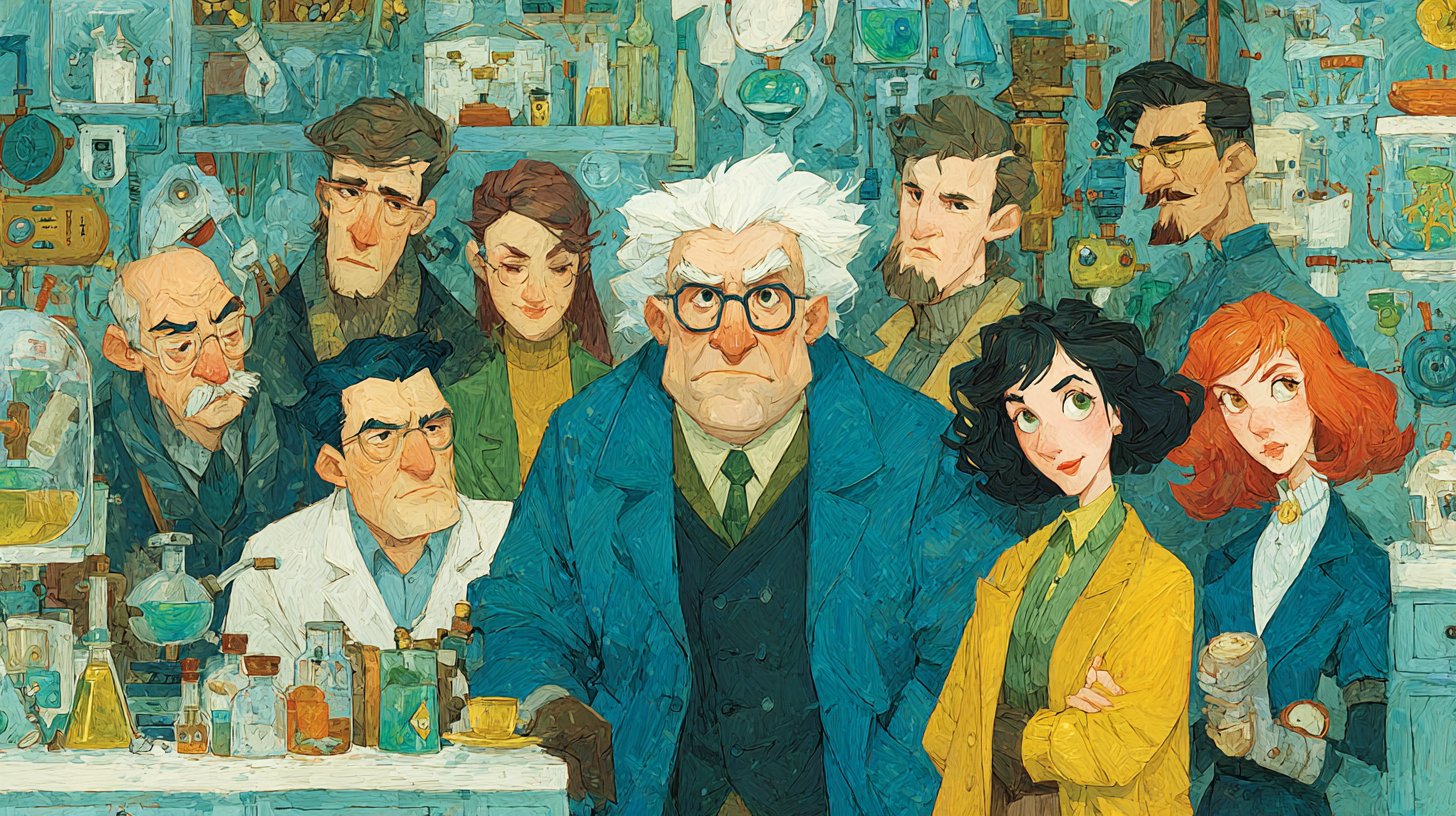Friendships in science reimagined

Friendship, science, partnership – these are three key terms that are of great importance in the academic world. The connection between academic partnerships and personal friendships is often inseparable, as they not only promote the exchange of knowledge but also create a sense of community and belonging. In this article, I would like to explore with you how friendships among scientists not only strengthen their collaboration but also contribute significantly to personal development.
Science is not just a dry process that takes place in isolated laboratories and libraries. Rather, it is a dynamic field that thrives on interactions and social relationships. These important relationships often begin during the study period but go far beyond academic collaborations. Studies show that close friendships among scientists can not only enhance research quality but also promote mental well-being. Strong support from friends can help reduce stress and overcome creative blocks that may arise in research.
The role of social networks
Nowadays, social networks play a crucial role in science communication. Through platforms like ResearchGate or LinkedIn, scientists can connect worldwide and present their work. These networks create an atmosphere of exchange and collaboration that often leads to friendly relationships. When scientists support each other, whether through feedback on their work or through informal conversations about new ideas, they create a fertile environment that fosters innovation. Friendships that develop in these networks help motivate each other and tackle challenges together.

Additionally, such networks are a great way to make connections across national borders. When people from different cultural and academic backgrounds work together, not only new perspectives emerge, but also deeper personal bonds. These relationships can develop into lifelong friendships that encompass various aspects of life, from joint projects to personal support in difficult times. Sharing successes as well as failures in a familiar environment strengthens cohesion and fosters a greater sense of community.
Mentors and mentees: A special relationship
Another important dimension that is often overlooked in science is the role of mentors and mentees. Many successful scientists have stories about their mentors, who not only supported them professionally but also acted as friends and supportive figures. These relationships are invaluable because they create an environment where less experienced scientists can ask questions, make mistakes, and learn from their experiences. Friendships between mentors and mentees are often characterized by trust and respect, which helps the mentees progress faster in their careers and develop independently.

The familiarity that arises from such relationships is rarely solely professional. Mentorships often develop into deep friendships where life wisdom and personal stories are part of the exchange. This not only provides young scientists with the necessary support but also promotes a culture of giving and taking that strengthens and enriches the entire academic field.
Friendship fosters creativity and innovation
One of the most beautiful aspects of friendships in science is the promotion of creativity and innovation. When scientists work in an environment where friendships are nurtured, they are often more open to ideas, provide constructive feedback, and ask critical questions that stimulate the thought process. Such dynamic interactions are crucial for the innovation process – because where people collaborate, new ideas and perspectives inevitably emerge. The creative exchange that occurs in friendships can often be more fostered through personal contact than through formal meetings or conferences.

This is also evident in the way many scientific breakthroughs are actually the result of friendly collaboration. Often, colleagues who have developed friendships over the years are able to combine their strengths and find answers to complex questions. These mixtures of skills and ideas often lead to the most exciting discoveries and advancements in science.
In summary, friendships in science are not only interpersonal relationships, but play an essential role in the academic landscape. They foster creativity, create a supportive environment, and often lead to significant scientific advances. When scientists view their colleagues as friends, they unlock their full potential and transform their work into a joyful and inspiring journey.
So take the opportunities that arise to forge friendships in your academic environment. Remember that the support of friends can make an enormous difference – not only for your career but for your entire life. Every person with whom you form a friendship can be an unexpectedly valuable companion on your life's journey.


